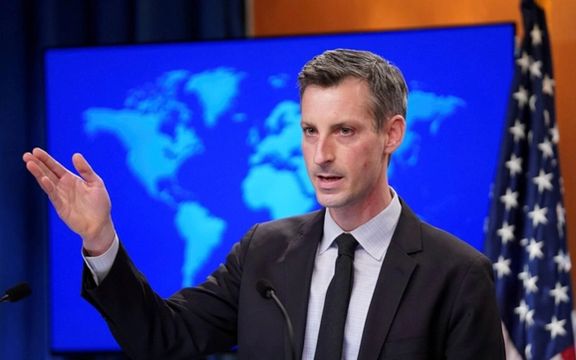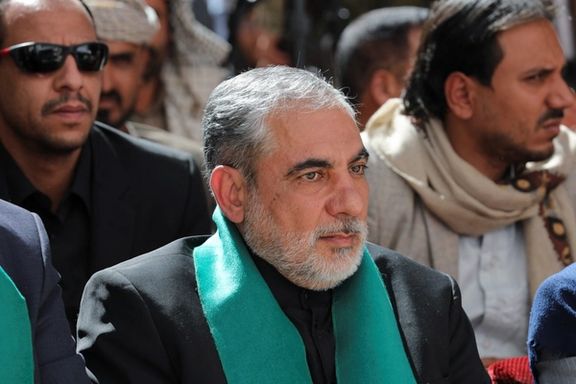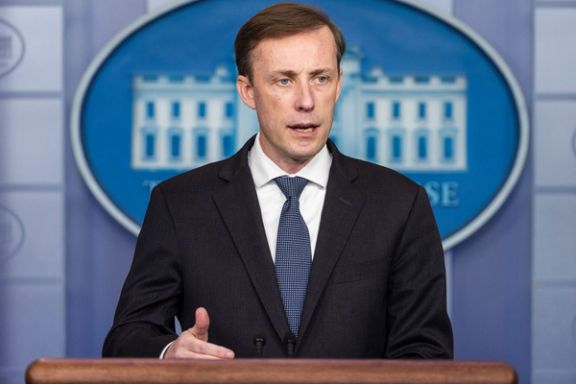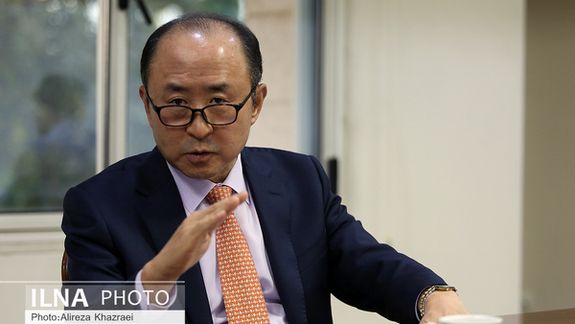No Urban Development Project Possible With Iran's Next Year Budget

Iran's transport and urban development minister says no construction project will be possible due to the low budget earmarked for the ministry for next year.

Iran's transport and urban development minister says no construction project will be possible due to the low budget earmarked for the ministry for next year.
During a meeting with businesspeople and contractors active in road and infrastructure construction in the country, Rostam Ghassemi added that the allocated budget can hardly provide the salaries of employees.
“Today, living conditions are such that if a worker does not receive salary for one month, he will not be able to eat even an egg,” the minister said.
Attracting private sector investments for the transportation sector is one way to address the budget shortfall the minister said but added that parliamentary authorization would be needed.
The ministry’s total budget for the next year is already 66 percent more than that of the current year, at roughly $4.8 billion at today’s market exchange rate, but high inflation in the past three years have eroded the value of the national currency.
Earlier in the month, President Ebrahim Raeesi submitted the fiscal 2022-23 budget bill to the parliament, projected to stand at about $50 billion.
This year's large budget deficit is expected to persist into next year.

The United States says insufficient progress in Iran nuclear talks has left Washington in an uncertain position as to whether the 2015 deal can be revived.
US Department of State spokesman Ned Price said during a press briefing Monday that there might be some modest progress in talks between Iran and the world powers but if the pace of diplomacy continues to lag, the the 2015 nuclear deal, JCPOA will be a corpse that cannot be revived.
A reporter asked that the Biden Administration has been complaining about Iran's slow pace in the talks but so far the US remains committed to the process.Price responded that progress in the talks “was better than it might have been, but it was worse than it should have been”, putting the US in an uncertain position as to whether the JCPOA is worth saving.
Price pointed out that the talks are going on in an atmosphere of provocation from the Iranians, saying that Iran is accelerating the pace of its nuclear program and leveling up its destabilizing activities in the region. “We can’t accept a situation in which Iran is dragging its feet at the negotiating table but accelerating the pace of its nuclear program back home”, he said.
He acknowledged the arrangement between Iran and the United Nations nuclear watchdog, the IAEA, to restore elements of transparency to international monitoring through reinstalling cameras at Karaj nuclear facility, calling it “a welcome step” but also “a step that never should have been necessary in the first place”.
He noted that there is still “a window of opportunity in which a mutual return to compliance with the JCPOA would be the best option for us, it would be the best option for the other members of the P5+1, it would be the best option for the international community”, because it would still be able to prevent Iran from obtaining a nuclear weapon.
Price, however, added that the US does not waste time and that it is discussing alternatives with partners in the region and beyond, saying, “We continue to watch what Iran does and what Iran says publicly, privately in the context of these indirect negotiations in Vienna… We’re prepared to lift sanctions inconsistent with the JCPOA, as long as Iran places itself back within the strict confines… in terms of the stringent verification and monitoring”.
Answering a question about Iranian-backed militias or proxies across the region, the spokesman said that the decision to walk away from the deal by the Trump administration in 2018 was supposed to “result in a so-called better deal, that would cow Iran and its proxies, that would leave the United States in a stronger position...And across every one of those promises, we’ve actually seen the opposite take place”.
“Across all of our concerns with Iran whether it’s its nuclear program, whether it’s support for terrorism, whether it’s support for proxies, whether it is destabilizing influence in the region, I think it is fair to say that every single one of our concerns has become more pronounced since 2018”, price said.
Defenders of a tough policy on Iran maintain that Iran will never make a deal that would permanently stop it from obtaining nuclear weapons or reduce its destabilizing activities in the region. Negotiations with and concessions to Tehran would provide time and resources for it to pursue its policies.
Price also spoke about the possibility that a nuclear deal might not address the concerns about the broader array of Iran’s destabilizing activities and behaviors throughout the region, noting that Washington is not sitting on its hands when it comes to Iran’s other “malign activities”.
“Iran’s support for armed groups threatens international and regional security. It threatens our forces, our diplomatic personnel, and our partners in the region and elsewhere. We as an administration are committed to countering the destabilizing influence and role that Iran is playing throughout the region, including with its support to proxies”, he said.
In another briefing on the same day, White House Press Secretary Jen Psaki said that due to the way that the Iranians have participated in the last round of talks in Vienna, President Joe Biden has asked the national security team “to be prepared in the event that diplomacy fails and to take a look at other options. And that has been work that has been ongoing, including in consultation with a range of partners around the world”.

Tehran should avoid miscalculations and should convince Supreme Leader Ali Khamenei to allow direct talks with the United States, pundits say in Iran.
Asr Iran, a moderate-conservative website published an article by Amir PasadehpourMonday saying Iran should take the step before it runs out of time to reach a settlement and avoid the final blow to its extremely weakened economy.
Similar opinions are more often expressed by some Iranian media outlets and public figures recently.
The article said that decisions made by Iranian nuclear negotiators in Vienna are often based on a miscalculation that avoiding direct talks with the United States delegation will humiliate America in the same way that the seizure of the US embassy in Tehran weakened the Carter Administration in 1979.
However, Pasandehpour argued that while the US public was sensitive to the hostage crisis, it really does not care much about what is taking place in Vienna. He added that miscalculating the situation could be dangerous for Iran.
Meanwhile, Pasandehpour added that unreliability of information coming from the Iranian negotiators about the Vienna talks has forced Iranian media and pundits to make judgements solely based on Western media.
During the past weeks, while the Iranian negotiating team and its leader Ali Bagherti-Kani insisted that there were no differences of opinion between the Iranian and other negotiators, it turned out every time that Western negotiators later denied Bagheri's statements.
In the latest case, while the Iranian negotiators last week said that the talks have led to desirable results, US National Security Adviser Jake Sullivan warned that there has been no progress in the talks and stressed that time was running out for any settlement. The E3 delegates also concurred with Sullivan.
Pasandehpour said that under the circumstances it was unlikely that the two sides could reach an agreement even in the next round of the talks.
Another miscalculation Iranian negotiators make is to believe have that as mid-term Congressional elections approach, the US sides, particularly those at the White House desperately need an agreement with Iran as a winning chip in the election. In fact, the author says, domestic issues are far more important in the elections than international issues.
Meanwhile, another moderate conservative website in Iran, Aftab News, highlighted the difference of opinion between the Iranian team and other negotiators about whether Iran has accepted the agreements made in the first six rounds of the talks as a basis for further negotiations. The website wrote that it is not yet clear whether the two sides are moving toward an interim agreement or even the previous agreement is falling apart.
Jalal Sadatian, a former Iranian ambassador to the United Kingdom, told Aftab News that negotiators usually approach each other with some distrust. That is how Western negotiators look at Iran and they have made Bagheri aware of it. Moreover, Iranian analysts believe that Tehran has no roadmap for the talks about the nuclear issue, and matters relating to human rights and terrorism.
Iran also wants a guarantee that the US will never leave a new agreement. Sadatian said it is highly unlikely that the current President of the United States can provide a guarantee that on behalf of a future president.
Foreign relations commentator Ali Bigdeli told Aftab News, "Bagheri has said that Iran and Western countries agree over 80 percent of the current draft agreement. This was the same 80 percent agreement that was made under the Rouhani administration." In other words, there has been no progress in the talks since the new negotiators took over several weeks ago.

Two days after his return from Yemen, Iran’s ambassador with Houthi rebels has died of Covid-19 complications, the foreign ministry announced early on Tuesday.
Hassan Irloo (Irlu) had left Yemen reportedly on a plane sent by Iraq, in coordination with Saudi Arabia that maintains an air blockade over Yemeni territories controlled by Iran-aligned Houthis.
The Iranian foreign ministry tweeted that Irloo passed away due “belated cooperation of some countries,” saying that when he returned to Iran his health had already deteriorated.
Last week controversy ensued after a Wall Street Journal report said that the Houthis had asked Iran to withdraw Irloo. Both Iran and the Houthi leadership denied the report, insisting that the ambassador suffered from Covid and needed to receive medical attention in Iran.
Foreign Ministry Spokesman Saeed Khatibzadeh had said in a tweet Saturday that he was being brought back home for Covid treatment "with the assistance of some regional countries" and thanked "the countries that contributed to this humanitarian measure."
However, US State Department Spokesman Ned Price on Monday commenting on Irloo's departure said, "We hope it is a sign that Yemenis understand the profoundly destabilizing role that Iran has been playing in their country for some time now."
Irloo was a member of Iran's Revolutionary Guards (IRGC) with close ties to Lebanese Hezbollah. He was sanctioned by the US Treasury Department in December 2020 due to his connections with the IRGC's Qods Force.

US national security adviser Jake Sullivan is scheduled to visit Israel and the West Bank this week to consult on Iran as well as a wide range of other issues.
According to the White House on Monday, Sullivan will meet with Prime Minister Naftali Bennett while in Israel and is also going to visit Ramallah for talks with Palestinian Authority President Mahmoud Abbas.
Deputy Assistant to President Joe Biden and Middle East and North Africa Coordinator Brett McGurk and the State Department’s Acting Assistant Secretary for Near Eastern Affairs Yael Lempert will accompany Sullivan in his trip.
According to the statement by the White House, Sullivan will also co-chair the fourth Strategic Consultative Group (SCG) with his Israeli counterpart Eyal Hulata, covering a year of extraordinary engagement between their inter-agencies on a range of national security matters.
While the talks between Iran and world powers aimed at reviving the 2015 Iran nuclear deal have adjourned after making no progress, Sullivan will reaffirm the US commitment to Israel’s security and “consult on a range of issues, including the threat posed by Iran”.
In Ramallah, Sullivan plans to discuss the ongoing efforts to strengthen US-Palestinian ties and advance peace and security for Palestinians and Israelis alike, read the statement.

In an interview with an Iranian website published Monday, South Korean ambassador Yun Kang-hyeo said US sanctions on Iran have harmed his country’s economy.
Yun told the Iranian Labour News Agency (ILNA) his country had suffered more than any − other than Iran itself − from ‘maximum pressure,’ under which the US threatens punitive action against anyone buying Iran’s oil or dealing with its financial sector.
ILNA said the interview took place a month ago but gave no reason for the delay in publishing the story.
Yun criticized the US 2018 withdrawal from the 2015 Iran nuclear deal and its imposition of unilateral sanctions, but argued Seoul had no choice but to comply. South Korean banks hold around $7 billion owed to Iran that they are not transferring for fear of US punishment.Most is for oil imports, as South Korea was among the main buyers of Iran's crude oil before 2018.
South Korea was among the top buyers of Iran's crude oil before President Donald Trump unilaterally withdrew the US from the 2015 nuclear agreement between Iran and world powers, Joint Comprehensive Plan of Action (JCPOA).
South Korea's petrochemical industries and refineries have faced difficulties due to the break in oil imports, Yun told ILNA, as they had been geared to process the type of crude bought from Iran and had struggled to find alternatives. Yun said Korea was importing oil from Qatar, ironically from a field jointly owned by Qatar and Iran, at a higher price.
Freezing the assets has soured Tehran's relations with Seoul. Iran detained a South Korean tanker and its crew in the Persian Gulf in January 2020, on grounds of environmental violations as the cause. The vessel was freed in April without the release of Iran’s assets.
After a letter from Iran's Supreme Leader Ali Khamenei September 6, President Ebrahim Raisi (Raeesi) barred imports from South Korea’s LG and Samsung, referred to by Khamenei as "two South Korean companies." While the leader referred to boosting local manufacturers, state media also saw the move as a diplomatic message.
LG and Samsung had reportedly stopped trade with Iran in 2018 despite Iran’s warning that it would be difficult for them to return once US sanctions ended. The Korean firms had previously strong sales in Iran, including partnerships with Iranian companies that assembled goods like air conditioners and televisions.
Yun told ILNA that an Iranian home-appliances manufacturer, Snowa, wanted a ban on South Korean imports but that he had urged company officials to extend cooperation with companies such as LG and Samsung. "The director of Snowa welcomed my suggestion and we proposed to find a good way to cooperate," Yun noted.
In early November some Iranian media, including Javan newspaper, which is affiliated to the Revolutionary Guards, criticized the Korean ambassador overhis visit to a private hospital to donate 2,000 Covid masks. The newspaper wrote that Seoul should instead free Iran’s billions and called Yun’s action “cheap and shameless.”